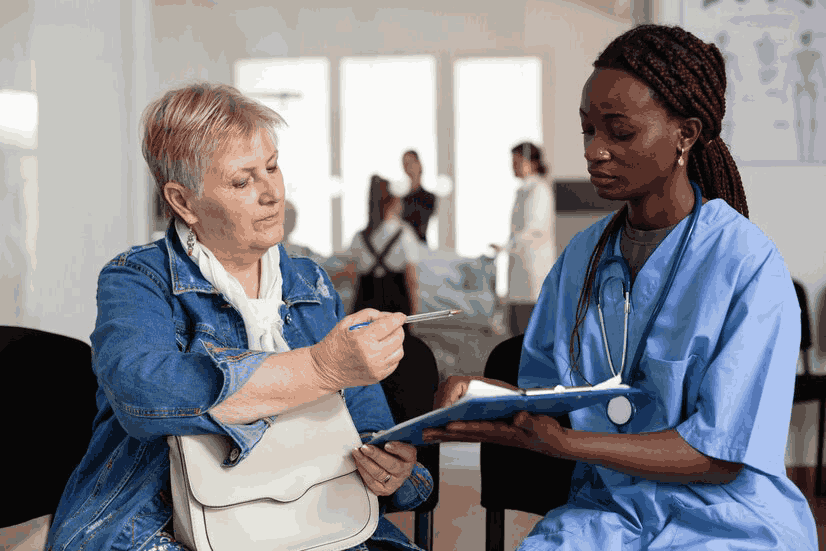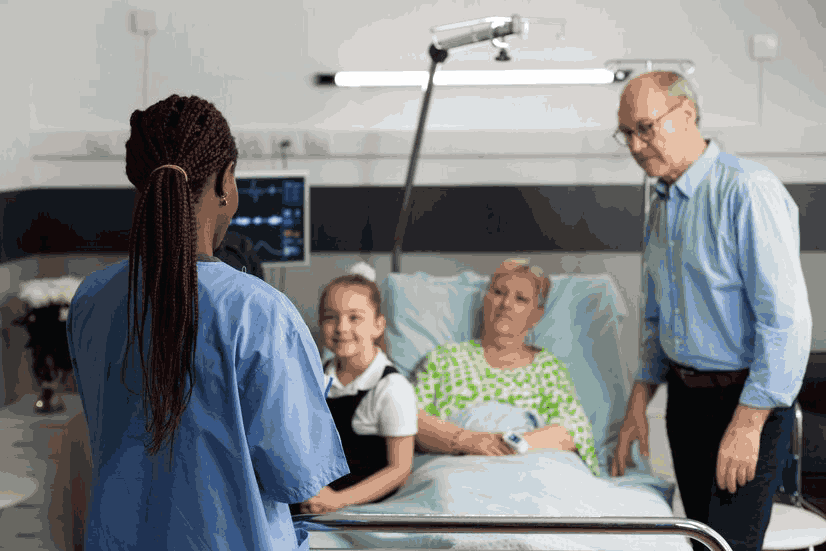Preparing for the Unexpected: Emergency Planning in Caregiver Services
In the realm of caregiver services, the unexpected can often become a reality in the blink of an eye. From sudden medical emergencies to unforeseen disruptions in care routines, being prepared for the unexpected is not just advisable – it's essential. In our blog series, "Preparing for the Unexpected: Emergency Planning in Caregiver Services," we delve into the crucial strategies and measures that caregivers and care providers must adopt to ensure smooth operations even in the face of unexpected challenges.
This series aims to equip caregivers with the knowledge and tools they need to create comprehensive emergency plans tailored to the unique needs of those under their care. Whether you're a professional caregiver or a family member providing support, understanding the importance of proactive planning can make all the difference in maintaining safety, security, and quality of care. Join us as we explore practical tips, expert insights, and real-life scenarios to help you navigate the unpredictable nature of caregiving with confidence and resilience.
The Importance of Preparedness in Caregiver Services

- The Impact of Unforeseen Events: When emergencies strike, the consequences of being unprepared can be dire. Lives may be at stake, and every second counts. Without a well-thought-out plan in place, caregivers may find themselves struggling to make split-second decisions under immense pressure, potentially leading to suboptimal outcomes or even tragedy.
- Ensuring Client Safety: The primary concern during any emergency is the safety and well-being of the client. Caregivers must be equipped to assess the situation swiftly and take appropriate action to ensure their client's safety. This may involve administering first aid, contacting emergency services, or following established protocols for evacuation or sheltering in place.
- Protecting Caregiver Well-being: In addition to safeguarding the client, caregivers must also prioritize their own safety and well-being. Emergency situations can be physically and emotionally demanding, placing significant stress on caregivers. Without adequate preparation, caregivers may be at risk of burnout, injury, or psychological distress, jeopardizing their ability to provide effective care.
- Building Trust and Confidence: Having a robust emergency plan in place not only enhances safety but also instills confidence among clients and their families. Knowing that their caregiver is well-prepared to handle emergencies can alleviate anxiety and foster trust in the caregiving relationship.
- The Role of Training and Education: Preparedness begins with education and training. Caregivers should receive comprehensive training in first aid, CPR, and other essential emergency response techniques. Regular drills and simulations can help reinforce these skills and ensure that caregivers remain proficient and confident in their abilities.
Empowering Caregivers for Emergency Situations
In the realm of caregiving, being prepared for emergencies is not just a task—it's a responsibility that can make a significant difference in the lives of both caregivers and their clients. Whether it's a sudden medical crisis, a natural disaster, or any unexpected event, caregivers need to be equipped with the knowledge, skills, and resources to respond effectively and ensure the safety and well-being of those under their care.

Comprehensive Training Programs
Empowering caregivers for emergency situations starts with comprehensive training programs. These programs should cover a wide range of topics, including first aid, CPR, emergency response protocols, communication strategies, and evacuation procedures. Caregivers need to be well-versed in assessing emergency situations, making quick decisions, and taking appropriate actions to ensure the safety of themselves and their clients.
Hands-On Simulations and Drills
While theoretical knowledge is essential, practical experience is equally crucial in emergency preparedness. Hands-on simulations and drills allow caregivers to apply their training in realistic scenarios, honing their skills and boosting their confidence in their ability to handle emergencies. Regular practice sessions help caregivers familiarize themselves with emergency protocols, improve their response times, and identify areas for improvement.
Access to Resources and Support
In addition to training, caregivers must have access to resources and support systems that can aid them in emergency situations. This includes access to emergency contact information, medical supplies and equipment, communication devices, and support from supervisors or colleagues. Knowing where to turn for assistance and having the necessary resources readily available can streamline the response process and minimize the impact of emergencies.
Emphasizing Mental and Emotional Resilience
Emergency situations can be highly stressful and emotionally taxing for caregivers. Therefore, it's essential to emphasize the importance of mental and emotional resilience in emergency preparedness training. Caregivers need to learn coping mechanisms for managing stress, maintaining composure under pressure, and seeking support when needed. By prioritizing their own well-being, caregivers can better support their clients during challenging times.
Continuous Learning and Improvement
Emergency preparedness is not a one-time event but an ongoing process of learning and improvement. Caregivers should regularly update their skills and knowledge through continued education and training programs. They should also participate in debriefings and post-incident evaluations to reflect on their performance, identify lessons learned, and make necessary adjustments to their emergency protocols.
Innovations in Emergency Response for Caregiver Services
- Advanced Communication Platforms: One of the most critical aspects of emergency response is communication. Advanced communication platforms, such as mobile applications and web-based systems, enable caregivers to quickly and efficiently communicate with clients, their families, and emergency services during crises. These platforms facilitate real-time updates, allowing caregivers to coordinate responses and access necessary support promptly.
- Remote Monitoring Devices: Remote monitoring devices have revolutionized the way caregivers can monitor the health and safety of their clients, particularly those with chronic illnesses or disabilities. These devices, including wearable sensors and smart home technology, provide real-time data on vital signs, activity levels, and environmental conditions. By leveraging remote monitoring technology, caregivers can detect potential emergencies early and intervene proactively to prevent adverse outcomes.
- GPS Tracking and Location Services: GPS tracking and location services offer invaluable support in emergency situations, especially for clients who may wander or become disoriented. Wearable GPS devices and location-tracking apps enable caregivers to quickly locate clients who may be lost or in distress, expediting rescue efforts and ensuring their safety. Additionally, location-based alerts can notify caregivers and authorities if a client strays outside of predefined safe zones.
- Telehealth and Virtual Consultations: Telehealth and virtual consultation platforms have become indispensable tools for providing remote medical care and support during emergencies. Through video conferencing and remote monitoring capabilities, caregivers can connect with healthcare professionals, assess the severity of a client's condition, and receive guidance on appropriate interventions. Telehealth services enable timely medical assistance, particularly in situations where immediate in-person care may be challenging to access.
- Emergency Response Apps and Alert Systems: Specialized emergency response apps and alert systems have been developed specifically for caregiver services, offering comprehensive support in crisis situations. These apps typically feature customizable emergency plans, instant messaging functionality, and automated alert notifications. Caregivers can quickly access emergency contacts, share critical information with responders, and initiate emergency protocols with the touch of a button, streamlining the response process and minimizing response times.
Conclusion
Home Matters Caregiving, we recognize the paramount importance of proactive emergency planning in providing unparalleled caregiver services to our clients in Pittsburgh, PA, and beyond. By prioritizing preparedness, we not only ensure the safety and well-being of those under our care but also demonstrate our unwavering commitment to their security and peace of mind. Through meticulous attention to detail and comprehensive strategies, we stand ready to navigate any unforeseen circumstances with resilience and professionalism, reinforcing our dedication to delivering exceptional support to individuals and families in need throughout the United States. For emergency assistance, please contact us at (800) 298-5140.


